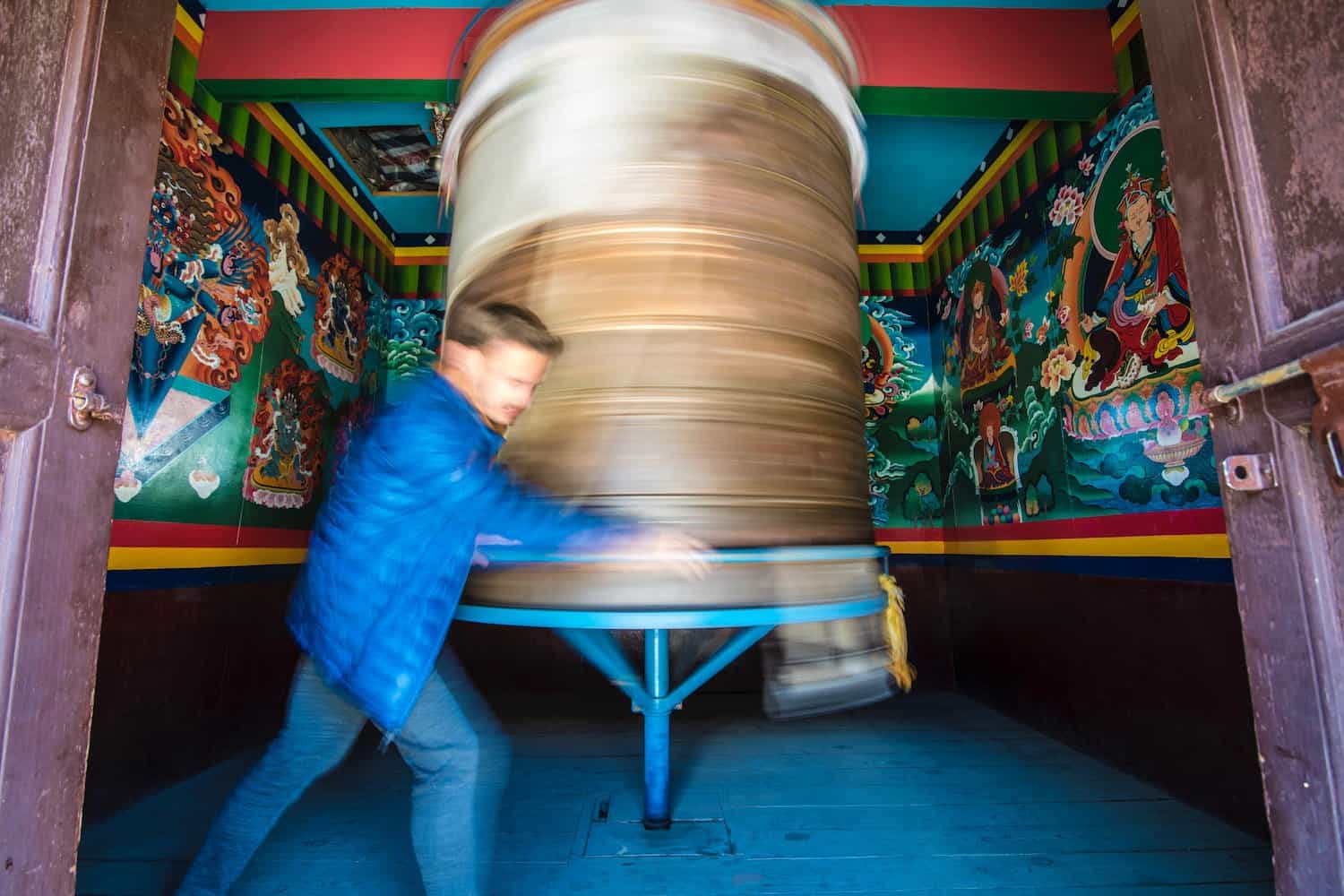I was wading through a sea of top-knot man buns and cargo pants that zip off into cargo shorts when I first heard the moaning.
“It was horrible no matter which side you were on,” said the man, whom I could tell was older and probably from somewhere near Chicago based on his voice. “He was horrible, she was horrible.”
I sighed, wanting for a moment to come to Hillary’s defense but instead choosing not to engage the blowhard, who happened to be wearing the hideous convertible pants—and would probably have had a top knot and/or a man bun, had he not been balding.
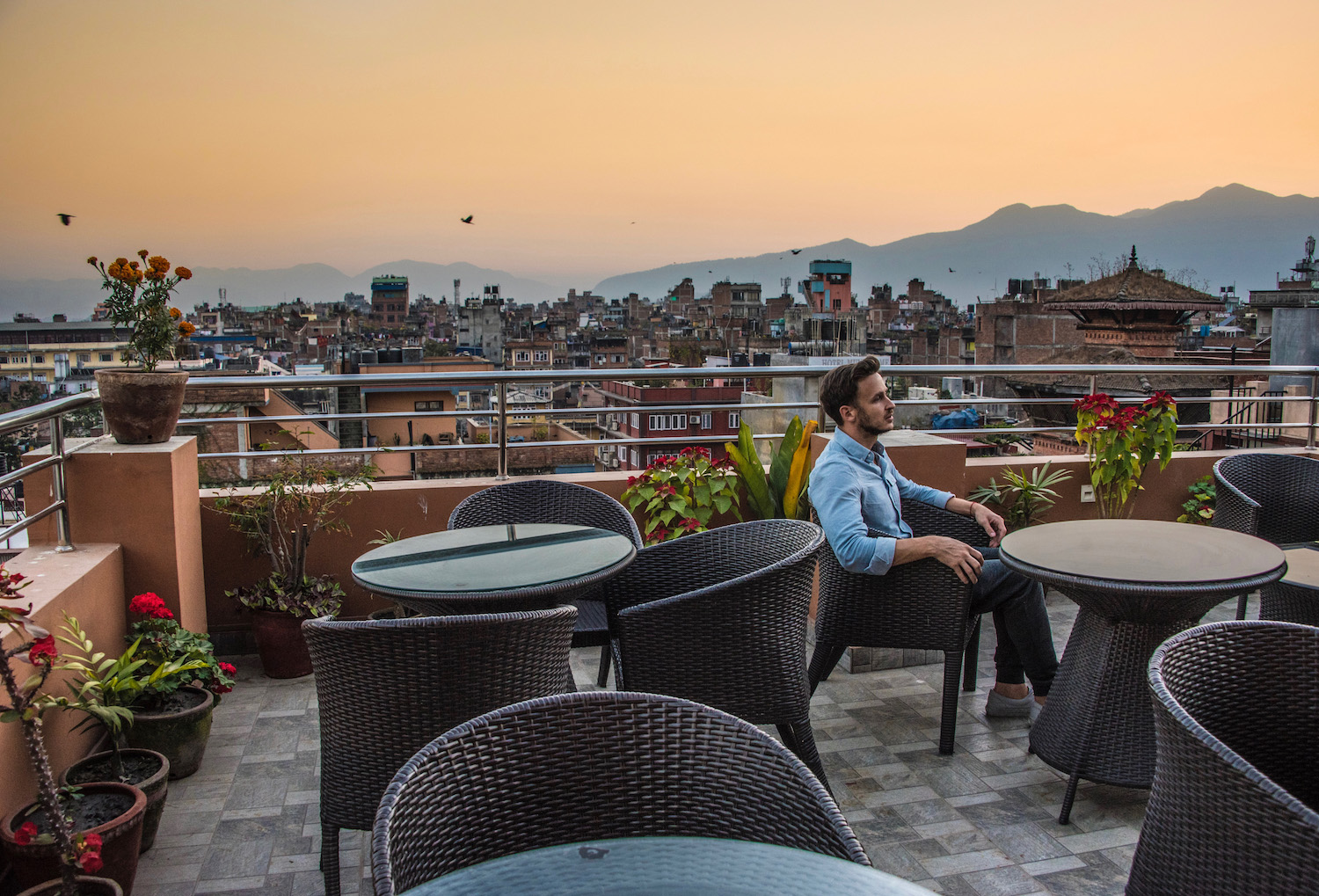
The day after the 2016 election began like any other of my days in the last quarter of 2016: I knelt down upon walking out so as not to disturb the spider who’d set up shop in my doorway.
But that was the only thing November 9 had in common with any of the days that came before it—and unfortunately, as I tended to do at least half the time, I hadn’t knelt down low enough to avoid destroying my guardian arachnid’s home.
“I hope Iran drops a nuke on D.C.,” I quipped to the Starbucks barista, a third of me serious, a third of me hoping he recognized my Selina Meyer quote, a third of me secretly wanting to elicit rage from the closest Trump supporters my math skills told me were lurking in the building.
Instead, solidarity.
“I get it,” he said, and handed me my Trenta-sized cold brew. “My boyfriend and I are going to push our wedding forward, just in case Pence gets his way.”
I took a sip as I turned away, feeling slightly guilty at having been so hyperbolic when both of us—coupled him more than single me—felt such legitimate rage.
I was preparing to dart across the parking lot toward my apartment complex when I realized I had seen the man standing outside the door once before. A burn victim—and a badly-burned one at that—he cupped several coins in what was left of his right hand.
As I shifted past, not wanting to be seen, one of his nickels fell to the ground. I bent to down to pick it up and put it on top of the others, which were so uniform I wondered who’d stacked them.
A second before I could apologize for not having any cash on me, the man looked me straight in the eye.
“You can leave now,” he said, almost pleading.
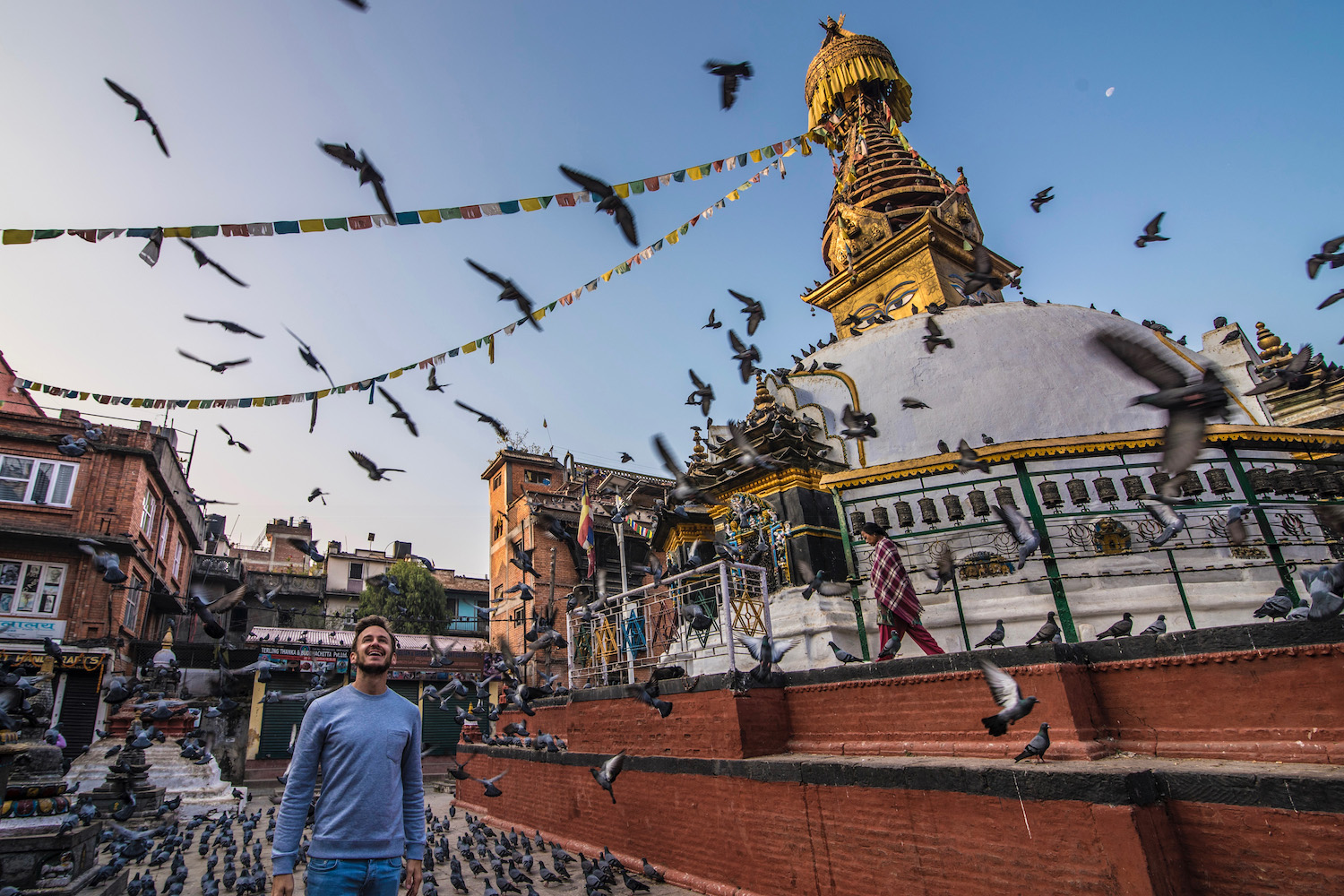
Kathmandu was the first place I woke up not completely terrified of a Donald Trump presidency. I saw the world, once again, through a lens of hope and possibility.
What do those marigold garlands mean? I asked myself as I lost counted one and then another (and then another!) en route to Durbar Square.
I considered posing my question to one of the women selling fresh-cut blossoms of the flower along Sukra Path, but assumed that none of them would speak English well enough to be able to answer me.
Just as I was about to turn on Siddhidas Marg for my final approach to the square, an eye caught mine: One of the Buddha’s, painted on the stupa of Kaathe Swayambu ShreeGha Chaitya, which should’ve missed on account of its clandestine location.
I spent a long time there, much longer than I should’ve, especially when you consider all the pigeons flying overhead—a magical sight, but only for as long as you can avoid the thought of shit falling on you.
Back on the main drag, my mind again drifted to marigolds. It was strange to me that they suddenly seemed exotic, what with how ubiquitous they’d been in all of the gardens my mother had tended during my childhood.
In fact, it was from a dried marigold seed pod I tore open that the first life I saw from beginning to end sprang.
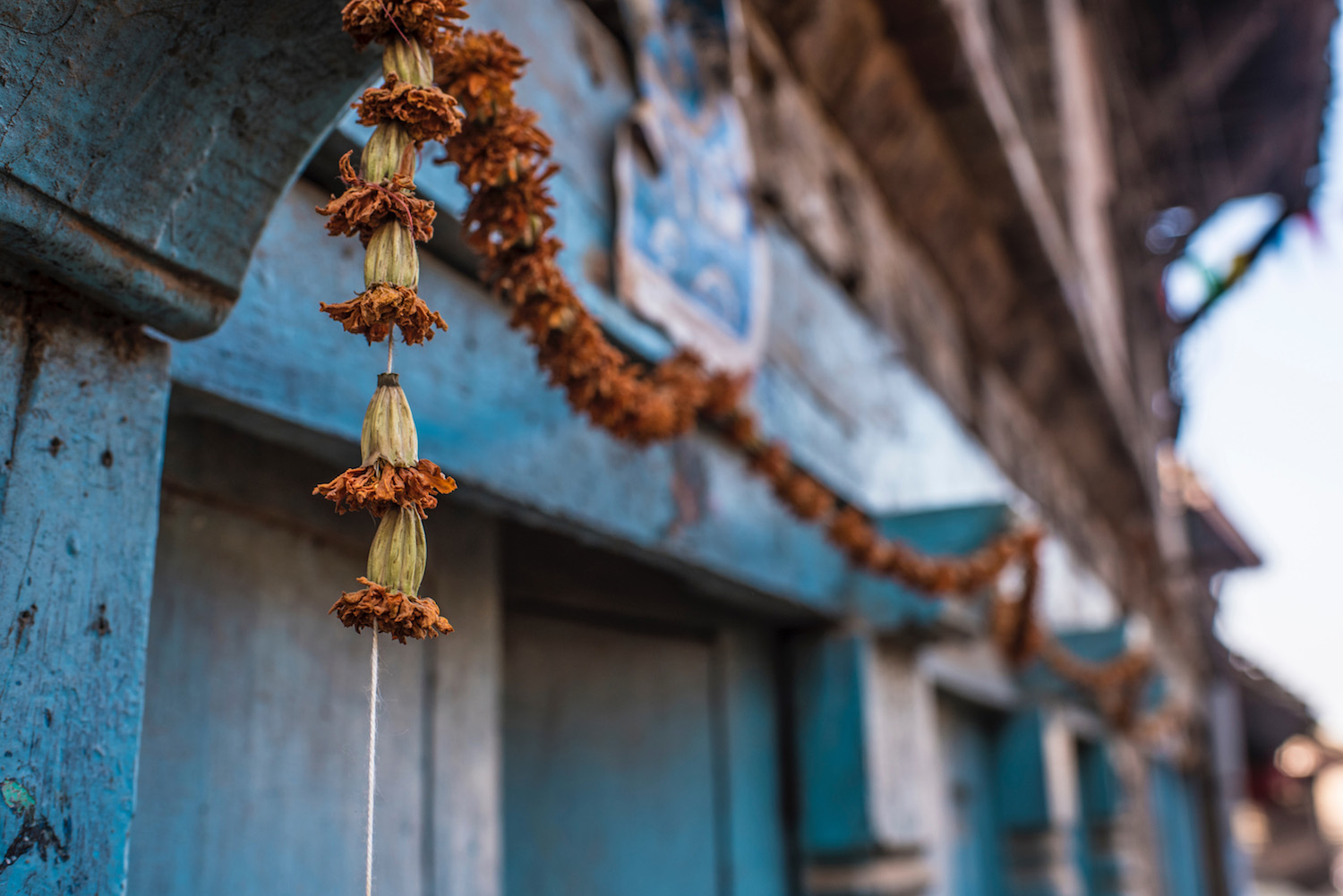
“Under the train,” the young man repeated, the golden garland behind him an artificial one. “The government didn’t help to rebuild our home.”
We’d just been in a conversation about the town of Dhulikel, where I was considering traveling to get my Himalaya fix, when the breakfast attendant at my hotel told me it was where his family lived—or used to, before the earthquakes.
You’re in the arms of an angel, the voice on the speaker sang, apathetic to Sarah McLachlan’s original lyrics. May you find the comfort there.
The song was a welcome break from the Buddhist chants that had been playing for all of my breakfast up to that point. And it distracted me from seeing Nepal’s—female—president on the TV, an image that rubbed salt in an otherwise-closed wound.
“If you don’t mind me asking sir,” he continued, as if he knew I needed a break from my thoughts. “How much are you paying here, per night?”
I washed down my sweet Tibetan bread with bitter black tea. “About 7,000 rupees. Why?”
“That’s an interesting coincidence,” he chuckled nervously. “7,000 rupees is my monthly salary.”
Wanting neither to ascribe a level of tragedy to this figure, nor to condescend the poor boy with a tip therein, I ignored his admission like it was one of Kitty Genovese’s screams.
“What are the meaning of the marigold garlands everywhere, anyway?” I changed the subject, pointing to the aforementioned silk one.
“Oh, those?” He looked up. “Well, I’m Buddhist, so they don’t mean much to me. But I believe they’re leftover from Dussehra.”
I shrugged my shoulders.
“It’s a Hindu festival. It commemorates how long ago, the goddess—which one, I don’t remember—fought with evil for ten days and nine nights.”
“Did she win?”
He sighed and picked up my empty plate. “I assume so. Why else would they celebrate?”
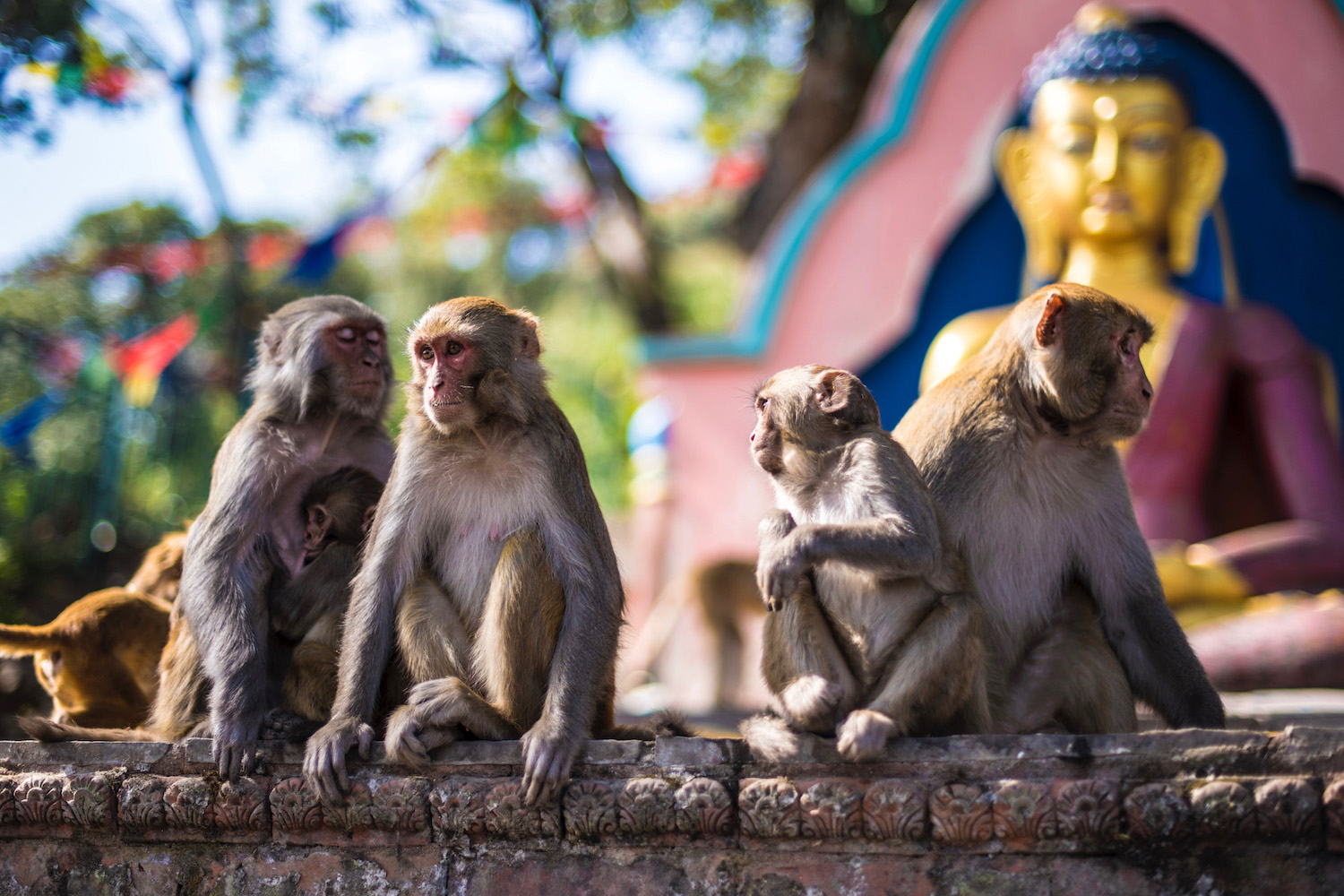
Monkey temples are far from rare in Asia, but Swayambhunath, which overlooks Kathmandu, has a more interesting story than any other I’ve visited. The site of a “self-existent flame” in legend, the temple allegedly dates back to the third-century Emperor Ashoka, whose early embrace of Buddhism is credited by many for the spread of the faith across Asia.
“Are the monkeys sacred too?” I asked the man my arms were wrapped around.
He started to answer, but the traffic police directed us to go before he could finish. We were on our way to Pashupatinath, a riverside temple where Hindu residents of the Kathmandu Valley burn their dead, and I tempered my fear of riding a motorbike by imagining I was Lana del Rey in the “Ride” video.
The sun was setting by the time we grabbed a seat overlooking the cremation pyres, and two things bothered me. The first was that, given the awkward ambiance the burning bodies in front of us created, I couldn’t tell whether my Grindr date was into me or not. The second was the spider spinning a web just above us, which made me wonder how my little friend back in Austin was doing.
“Do you know what spiders mean in Hinduism?” He asked, rectifying both my concerns at once.
I shook my head.
“They represent being caught in the illusion of the physical world.”
I looked down at the flames in front of me, all but one of the bodies now fully turned to ash—certainly, these people were no longer caught in any such illusion. “And what about fire?”
“In the body,” he explained, “our fire god Agni is represented by the eyes.”
“So they’re related?”
He looked up at the spider, then down at the river. “You might say that.”
I considered asking him once again about the significance of the monkeys at Swayambhunath, but instead decided to grab his hand as we watched the dead burn together.
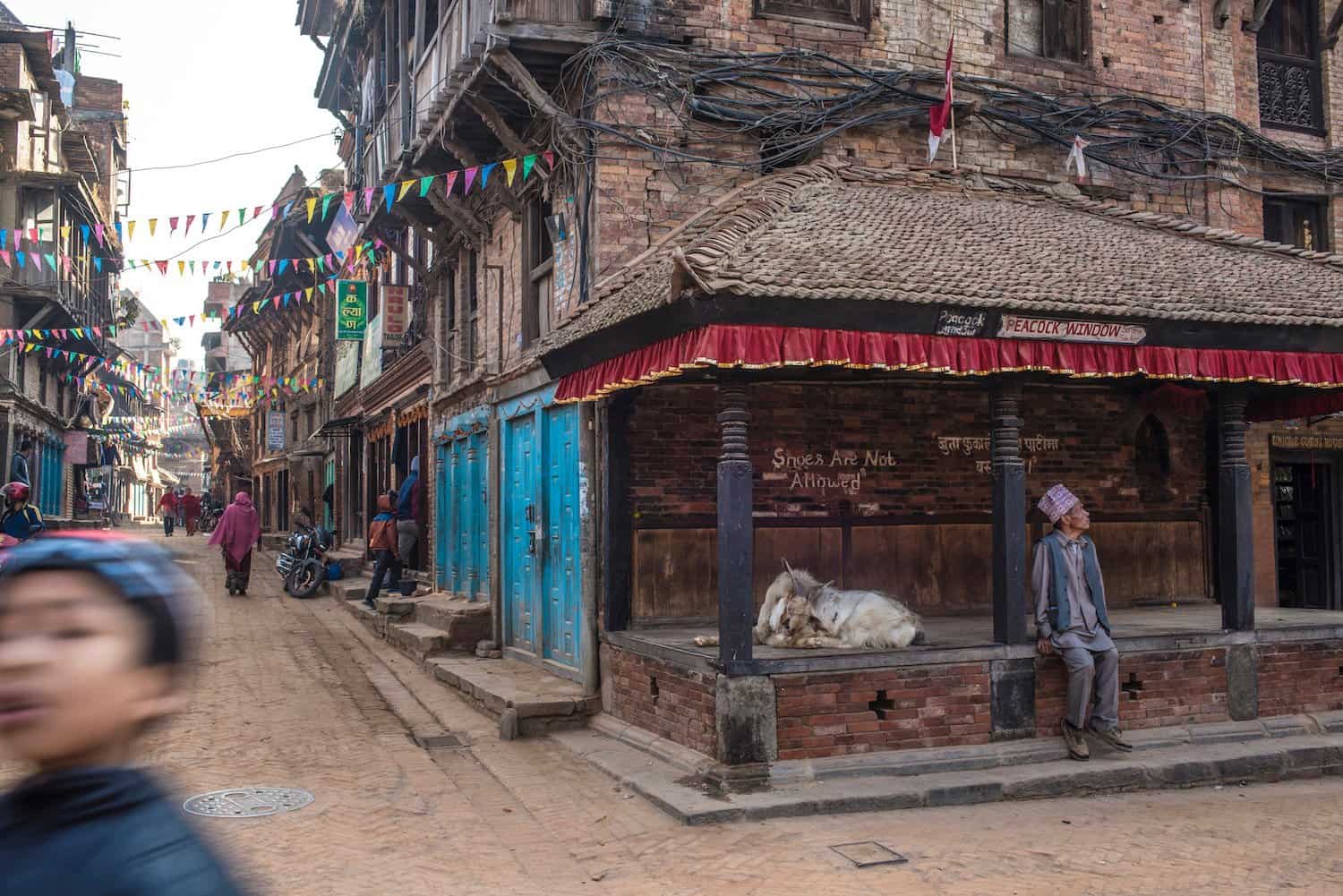
“You need to come with us,” a police man with a blurred-out face said, and handcuffed me.
I thought to ask him why—I tried to ask him why—but no sound can out of my mouth. Trapped in a house that wasn’t mine—a house I’d never seen before—it was only when I stopped trying to remember where I was that I noticed the smoke: A fire was burning in the backyard, and I supposed that I had lit it.
“Is that why you’re taking me?”
“Pack your things,” he said, “let’s go.”
Just then, I noticed his hand was exactly the same as the deformed one of the man who’d been begging outside of Starbucks on November 9. I looked at his face, now illuminated, and realized the man taking me was the burn victim. But before I could say anything, I sprang awake.
I put on my glasses, pulled out my computer booked a flight to Lukla, known internationally as the world’s most dangerous airport, but locally as a gateway to the Himalayas.
I’d considering doing this for several days, but the thought of seeing families living under trains in Dhulikel—and, perhaps more than that, the call to action of the spectre in my dreams—motivated me to head farther afield to get my mountain fix.
Hours later at the airport, a young man standing next to me at the check-in counter tapped me on the shoulder. “You also go to Lukla?”
I nodded.
Within a few minutes, I learned a great deal of information about Ryota, who was visiting from Japan. Unfortunately, one bit of it—that he’d been born in Nagasaki and spent his early adulthood in Hiroshima (i.e. both of the world’s atomic bomb sites)—furthered my trepidation about the journey.
But the DHC-3 Otter landed half an hour later without incident and before I knew it, I was trekking up a steep slope (Lukla is not so much as a town as a strip of hotels that immediately leads to the Everest Base Camp trail) with my Nepalese guide and Piotr, a tall, built Pole he’d poached from one of the preceding arrivals.
“Chocolate?” Piotr asked, and offered me a square of the same Ritter candy bar—white chocolate with hazelnuts—I always enjoy in Switzerland with my best friend.
I wonder if she was trying to tell me something? I questioned myself, noting the nature-related notifications that had come on my phone—the North Pole being 36ºF warmer than normal and a second Japanese tsunami at Fukushima—during the second or so I had internet, to say nothing of the conspicuous lack of snow on so many of the peaks outside the window.
I now realize I never introduced you to my guide, which is rude of me. His name is Ngima and accompanying us on our trek are his wife, who emerged from a random house as we were making our way to Phakding the previous day, and his three-year old son also called Ngima, who has been riding on her back for most of the the trek up to this point.
The five of us—Ngima’s family, Piotr of Poland and me—began our long slog toward Namche Bazaar after the sun had risen, but in the few minutes that transpired between the appearance of light and the disappearance of the chill from the air.
Stopping in a café encircled by marigolds to remove my thermal layers, I looked up to the top of the mountain that rose above us, and noticed a tiny (from my perspective) waterfall.
There’s obviously snow somewhere, I reassured myself. Nature knows how to take care of itself.
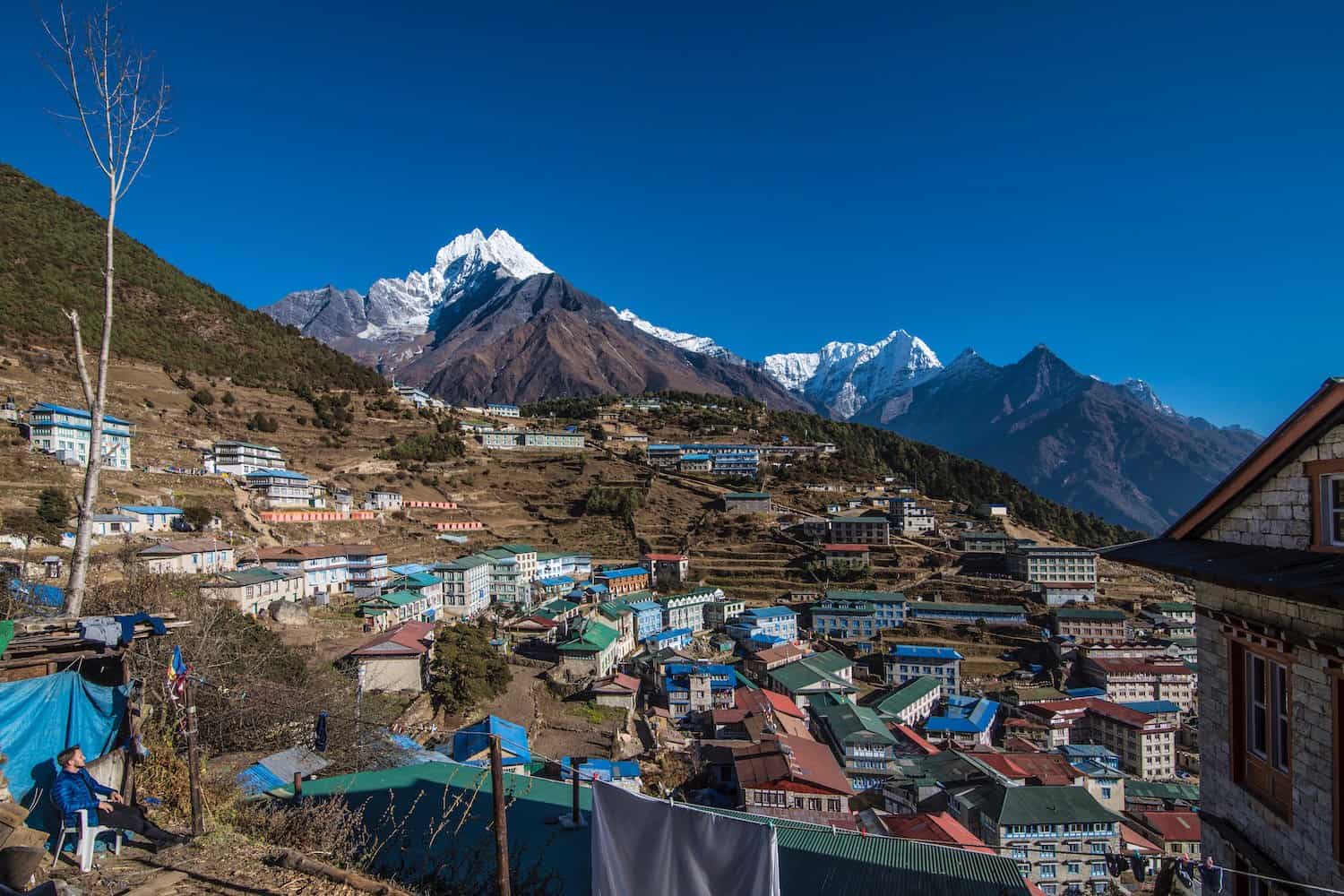
Having gained nearly a kilometer in altitude while trekking from Phakding to Namche Bazaar, we were told the next day would be used for “acclimatization,” which initially had me thinking we’d be inside sipping tea from the time the sun rose over one end of the Himalayas and fell behind the other.
Unfortunately for me (or perhaps fortunately, for reasons I’ll outline in just a moment), this was not the case.
Among other destinations on our hike, which was equal both in horizontal and vertical displacement to the one that would take us to our final destination the next day, was Hotel Everest. It was the highest hotel in the world, although that fact was not self-evident.
I could see this view perfectly from the trail, I noted. Who knew the ‘top of the world’ was so anti-climactic?
The top of the world, and sight of light leaving it.
In most of my experience, to be sure, sunsets are colorless, forgettable affairs, where a white sky dims to grey and then to black. But in the rest of it (roughly five per cent), a certain sort of cloud—the sort that seemed, until just a few minutes before sunset, to be wrapping around the mountain peaks just above Namche Bazaar—takes the least forgettable color from the sun’s last light and spits it out into something you don’t have to Photoshop to get hundreds of likes.
But today was not the day for that. Right as I imagined I’d be seeing plumes of orange, purple and pink, a thick white fog raced out of the ravine we’d hiked in from, like foam being shot out of a fire extinguisher.
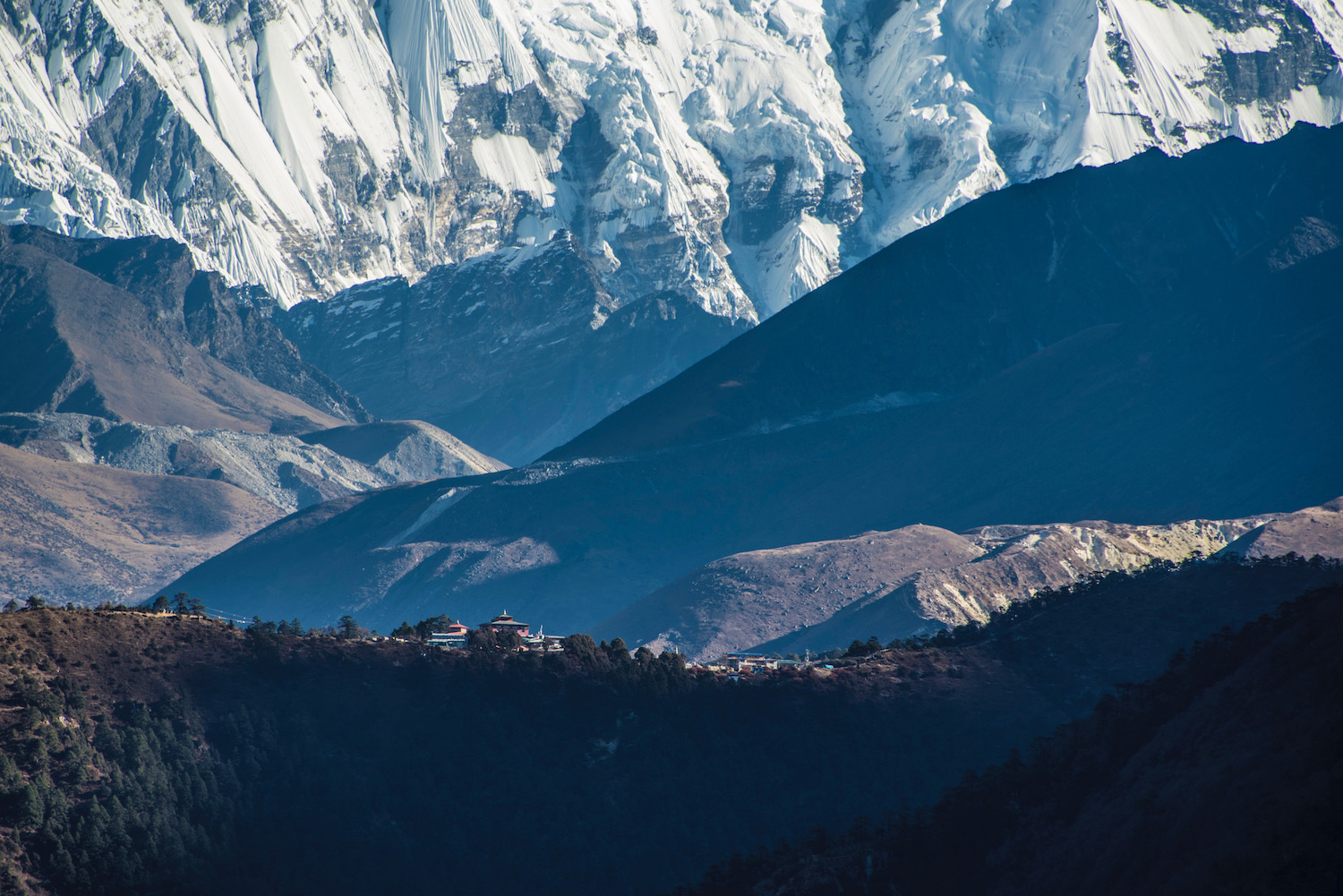
As we continued the next day, I tried to focus more on the giggles of little Ngima—and the distant likeness of what I assumed was Tengboche Monastery—than on the trail’s stones, which were now beginning to hurt my feet as I plodded over them.
What kind of stories will he tell his children? I wondered, imagining that his father’s business will leave him a wealthy adult.
But I couldn’t ignore the stones—they’d been laid so neatly, probably by someone who didn’t earn in a day even what I’d paid for my potato momos at lunch the afternoon before in Khumjung.
I stopped a few minutes later and noticed two porters, each carrying a load more massive than himself, looking exhausted. I offered them water (only one accepted) and felt good for having been generous instead of selfish.
Just then, two top-knot/man-bun bro-packers thundered by, their heavy hiking boots dislodging many of the stones my own steps had left intact.
Behind them, a long line of yaks approached; and behind them, I could see an entire caravan of porters, each one carrying a load that seemed slightly more likely to break his back than his predecessor’s.
A few days before arriving in Nepal, I watched a film called “Fairytale of Kathmandu” at the advisement of a colleague I became close with in the wake of the election. In the film, a bright-eyed, bushy-tailed female director follows a middle-aged, gay poet (she’d been a big fan of his) to Nepal, where he unsurprisingly (to me, anyway) engages in prostitution with young (but legal) Nepalese boys.
The beginning of the film foreshadows the respect the director loses for the poet long before she confronts him over his supposed wrongdoing; it ends on a note that is moralistic, if not outright judgmental. The layers of privilege and prejudice, both in the actual story and the narration of it, are confounding, and not only because the director seems unaware of them.
As I watched the next pair of porters pass by, and considered but ultimately declined to offer them some of my water, I pondered which was worse: That certain young Nepalese men sell their bodies to Westerners; or that the ones who don’t wreck theirs so I can take a selfie in front of Everest?
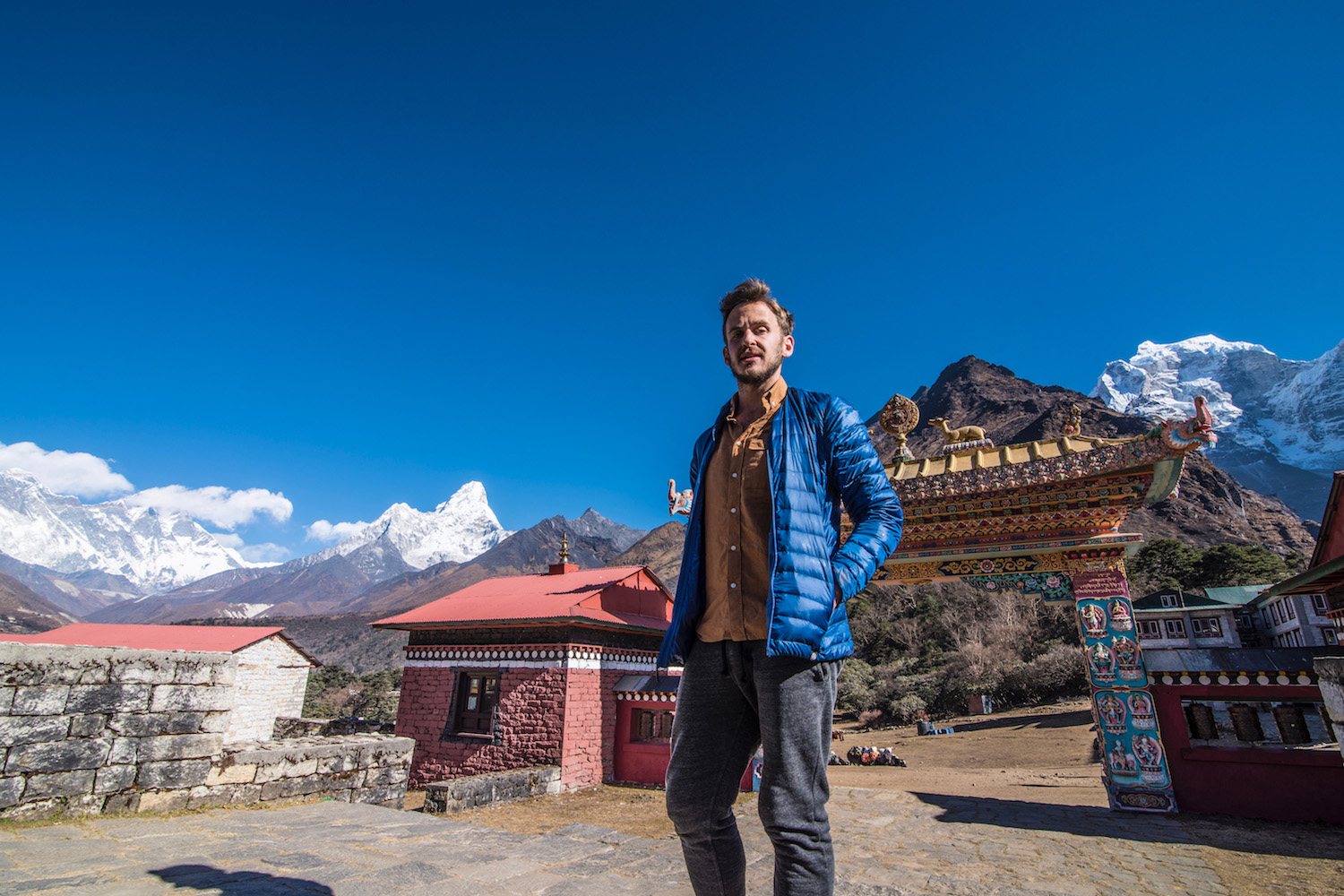
“Namaste Robert!” Little Ngima shouted and waved from across Tengboche Monastery, where big Ngima, his wife, Piotr and I were watching a ceremony take place.
Although the monks, who were now chanting, had scolded many of the adults in the hall for speaking and even breathing too loudly, they remained silent as the little human spoke to me.
As they repeated their mantra (the same one, incidentally, that had been playing at breakfast in Kathmandu), little Ngima propagated his own, one that seemed more intricate and more urgent, as mindless utterances go—although, to be fair, all prayers of the elderly are merely a refrain of childhood’s cries.
He again shouted “Namaste,” with a joy in his voice and on his face that made me feel I must be special to him.
But do I have the right to think of this child and his parents as friends, or even acquaintances? I admonished myself, Or are they just serving me like the porters and the yaks and the men who laid the stones that led me safely here?
After leaving the main hall of the monastery, I wandered into one of the side buildings, where a large Tibetan prayer wheel was sitting, stationary. I started spinning it, not sure of exactly what that entailed, but aware that I was doing it in the wrong direction, and curious about what bad luck might befall me as a result.
That night, after the only non-colorless, not-forgettable sunset of the 10 days and nine nights I’d spent in Nepal up to that point, I began to meditate on the discreet place of fire in Buddhism, as compared to its flamboyance in Hinduism.
“If you burn all your skin off,” a darkened silhouette screamed into the darkness of my mind, “you are everyone.” A light came on, and the face of the burn victim appeared in front of me for a final time.
I gasped audibly and opened my eyes, noticing that yet another notification had appeared on my phone. Green party candidate Jill Stein requests recount in WI, MI and PA, it read. Election not over yet?
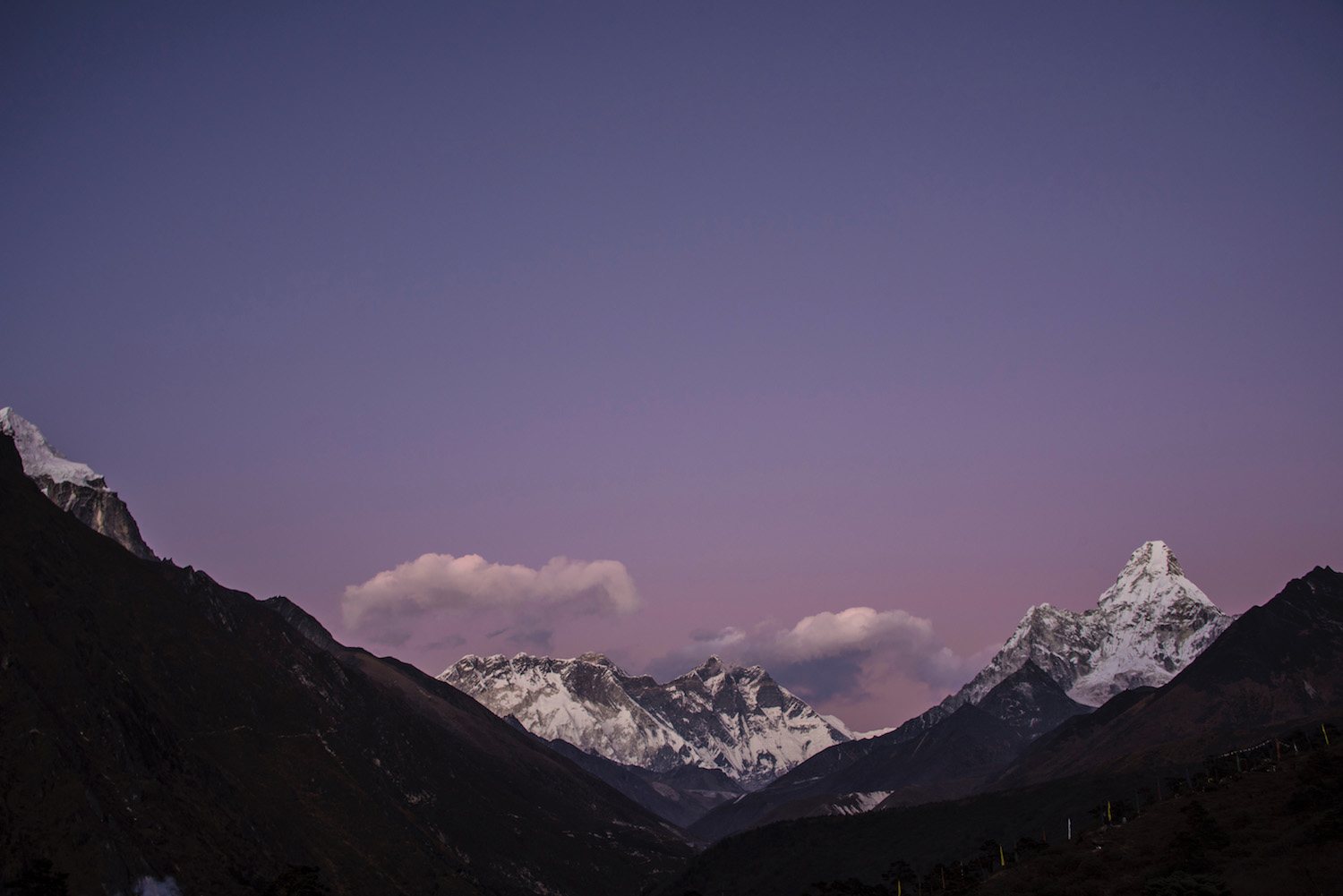
It’s hard to rank the countless dumb decisions I’ve made in my life, but my choice (or, rather, agreement) to hike all the way back from Tengboche to Lukla in a single day has to be near the top. The misery I felt in my feet (I was wearing Vans) and lungs (the net change in elevation was more than three miles) notwithstanding, the 10-hour trek subjected me to mental and emotional torture.
It wasn’t just that I could hear the sound of close-flowing water long before I arrived a long any given riverbank, or that each village I saw in the distance—Namche Bazaar, Phakding or any of the other places I’d previously stopped—existed at least an hour deeper into space-time than they initially appeared.
Nor was it solely that every subsequent porter I encountered seemed less interested than the one before him in drinking my water, let alone in saying “Namaste” to me, or even walking in a way that didn’t risk pushing me off the nearest cliff. It wasn’t even how the sweet faces and jangling bells of a given yak contrasted with the ever-greater terror in each of their pairs of eyes.
And with the deep hypocrisy I felt: Compassion for a being whose servitude I depend on is fruitless.
But this has always been the story of the East vis-a-vis the West—even marigolds, and how exotic their seeming sacredness paints them in Nepal, were an import from the Portuguese. I doubt the bitching blowhard at Kathmandu Airport (or any of the enlightened bro-packers that stood between us) even voted in the election.
Indeed, by the time I saw my final garland, dangling over the gate that leads to Lukla, I ceased to see any beauty in it. I paid mind only to the Buddha statue rising above it, which seemed as much to welcome me back as to rebuke me for having come in the first place: A half-dozen porters were beginning their journey as I ended mine.
It’s how the now-revered Ashoka must’ve felt as he arrived in Kalinga to find the conquest he ordered of it completed: Rejoicing, at first, in his apparent success, but mourning all the victims left in its wake.

Robert Schrader is a travel writer and photographer who’s been roaming the world independently since 2005, writing for publications such as “CNNGo” and “Shanghaiist” along the way. His blog, Leave Your Daily Hell, provides a mix of travel advice, destination guides and personal essays covering the more esoteric aspects of life as a traveler.

